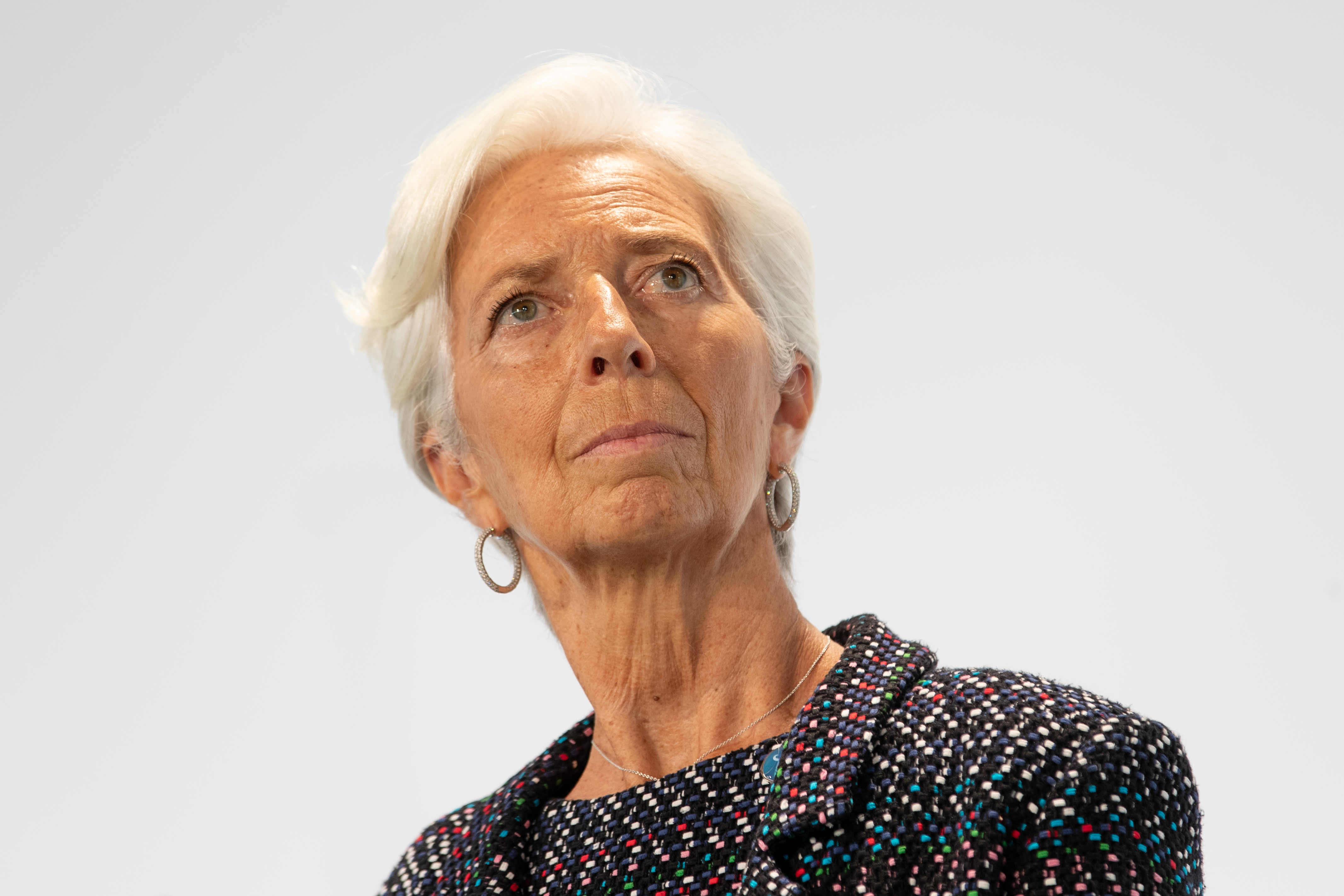
President of the European Central Bank Christine Lagarde.
Pool | Getty Images News | Getty Images
The European Central Bank hinted at more monetary stimulus on Thursday, as the two largest economies in the region prepare for a second national lockdown.
The bank decided to keep its rates and wider monetary policy unchanged, but suggested that additional policy action in the euro zone could come as soon as December.
“The Governing Council will carefully assess the incoming information, including the dynamics of the pandemic, prospects for a rollout of vaccines and developments in the exchange rate,” the ECB said in a statement on Thursday.
It said new economic projections in December “will allow a thorough reassessment” of the economy and risks.
“On the basis of this updated assessment, the Governing Council will recalibrate its instruments, as appropriate, to respond to the unfolding situation,” the bank added.
In September, the ECB estimated a contraction of 8% in euro zone GDP this year, followed by a rebound of 5% in 2021. In terms of headline inflation, it forecast 0.3% for 2020, followed by an increase to 1% in 2021. But the institution, led by Christine Lagarde, will update these forecasts in December.
The latest statement from the ECB suggests that policymakers will adjust their monetary policy based on those upcoming forecasts.
Speaking at a press conference following the announcement, ECB President Lagarde said the euro area economic rebound was “losing momentum more rapidly than expected.”
“The rise in Covid-19 cases and the associated intensification of containment measures is weighing on activity, constituting a clear deterioration in the near-term outlook,” Lagarde said.
As of Thursday, Europe has seen more than 6 million infections and more than 200,000 deaths from Covid-19. Data from the European Centre for Disease Prevention and Control shows that France, Spain and the U.K. have the highest number of cases so far.
“We will be looking at everything,” Lagarde said, in reference to all available monetary instruments, suggesting that any action from the central bank might not be restricted to its coronavirus-specific program.
“In the meantime, we’re not going to just standstill. We are going to use all the instruments that we have with the entire flexibility that we have … to address the situation and to address any development of the situation,” she said.
“We have done that in the past: We have responded very promptly, very appropriately, very heavily, some would say, to the first wave that hit the euro area economies. We have done it for the first wave; we will do it again for the second wave,” Lagarde said.
The door is ‘wide open’
“The door for December action is wide open. Let’s hope that the situation doesn’t worsen further so that the ECB has to rush through the door earlier than planned,” Carsten Brzeski, global head of macro at ING, said in a note.
Claus Vistesen, economist at Pantheon Macro, said the ECB had given a straightforward signal.
“Growth forecasts will be slashed come December, prompting the ECB to provide more stimulus,” he said via email.
“Even if a vaccine is found, and if it is deemed to be effective, it won’t be operational in the near term, indicating that the central bank will need to do more to shield the economy in the short term.”
No action — for now
Thursday’s decision means the interest rate on the ECB’s main refinancing operations, marginal lending facility and deposit facility remain at 0%, 0.25% and -0.5%, respectively. In addition, its Pandemic Emergency Purchase Program (PEPP), created in the wake of the coronavirus outbreak, was left unchanged.
It comes as the euro zone battles a rapid increase in the number of Covid-19 infections, leading some governments to implement new restrictions.
French President Emmanuel Macron on Wednesday announced a second national lockdown, though schools and factories will remain open. While Germany announced on Wednesday a “light lockdown,” with restaurants, bars and public events closed as of next week.
The second wave of infections could deliver a fresh blow to the euro zone economy, which was expected to rebound in the second half of 2020. Preliminary data released last week showed that business activity in the euro area shrank in October amid new social restrictions. However, the picture is expected to worsen if governments go ahead with additional measures.
Another issue facing the ECB is the strength of the euro, which has appreciated almost 5% against the U.S. dollar since the start of the year. The central bank said at its September meeting that it discussed the strengthening of the euro but stressed that it doesn’t target the exchange rate with its policies. A stronger euro is often seen as an issue for Europe’s economy, given the reliance of the euro area on its exports.




